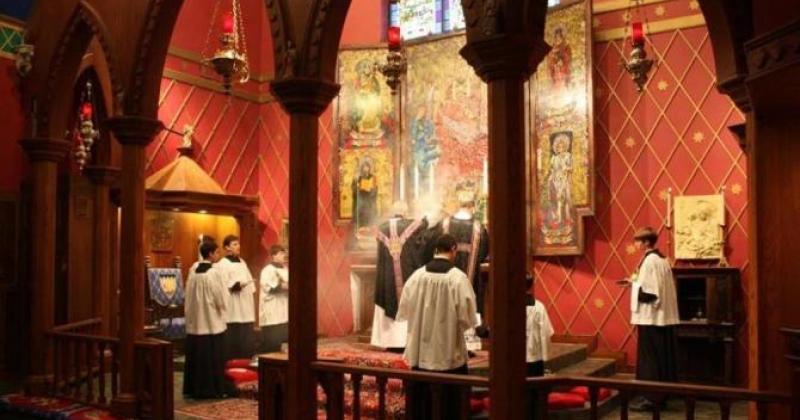This is a joint initiative of the 36 bishops of IARCCUM - the mixed commission established by the Anglican Communion and the Roman Catholic Church – which aims to mark the 50th anniversary of the official start to dialogue between the Churches. A ceremony is to be held on 5 October attended by the Pope and Primate Justin Welby.
Thirty-six bishops representing Catholic and Anglican communities around the world are to embark on a pilgrimage to Canterbury fist and then to Rome. This is how they have chosen to celebrate the 50th anniversary of the start of an official dialogue between the Catholic Church and the Anglican Communion. Dialogue officially began with the joint declaration signed by Paul VI and the then Archbishop of Canterbury, Michael Ramsey, in 1966.
The initiative was promoted by IARCCUM, the International Anglican Roman Catholic Commission for Unity and Mission, which was established in 2000 as a pastoral point of reference in the dialogue between Rome and Canterbury. The commission is currently chaired by the Catholic archbishop of Regina (Canada), Donald Bolen and Anglican bishop David Hamid. The bishops themselves – who form part of this official body and hail from 18 different countries – will be going on the pilgrimage that will conclude in Rome on the afternoon of October 5th. Pope Francis and the Anglican Primate, Justin Welby, will celebrate a liturgy to mark the end of the pilgrimage. Prelates will be travelling together, from Canterbury, where they will spend the first leg of this joint journey “to discover new ways on the basis of the agreed statements,” as they put it.
Starting Friday, IARCCUM will be holding a meeting in Britain, to take stock of their achievements over the past 50 years and in particular, to reflect on the document titled “Growing Together in Unity and Mission”, the 2007 text in which Catholics and Anglicans tried to sum up the fruits and new challenges that have arisen from the theological dialogue between the two communities. A powerful celebratory moment during the first leg of the pilgrimage in Canterbury will be marked by a visit to the tomb of St. Thomas Becket. John Paul II and the then Archbishop Robert Runcie visited this tomb in 1982 and prayed there together, in what marked another milestone in the recent history of Catholic-Anglican relations.
A history which actually began back in 1960, when the first meeting between a Pope – John XXIII - and an Anglican Primate - Geoffrey Francis Fisher – took place. That, however, had been a private visit. It took until 24 March 1966 for an official meeting to take place and for the first joint declaration to be signed by Paul VI and Archbishop Ramsey. Since then – through ARCIC, a joint theological commission – numerous joint documents have been drafted on subjects such as the Eucharist, the ordained ministry, ecclesiology and the way Mary is viewed as a figure. But it was primarily the fraternal relationship between Rome and Canterbury that grew as a result of the regular meetings between Popes and Anglican primates (the last of which took place in Assisi, just a few days ago). This was despite the difficulties caused by divisions over new issues too, for instance the ordination of female priests and homosexuality, which are currently a cause of disagreement even within the Anglican Communion.
The joint pilgrimage is intended as an opportunity to boost dialogue between the Churches, particularly on a pastoral level, which is IARCCUM’s focus. Bishops will arrive in Rome on 3 October, visiting the tombs of the Apostles Peter and Paul. 5 October, will begin with an academic symposium at the Pontifical Gregorian University. The most important event however, will take place at St. Gregory the Great at the Celio, the Roman church where monk Augustine served as Prior when he was sent to evangelise the Anglo-Saxon populations in 595. Pope Francis and Archbishop Welby will pray here together, presiding over a rite in which bishops present will be tasked with continuing dialogue in the everyday life of their respective communities.
